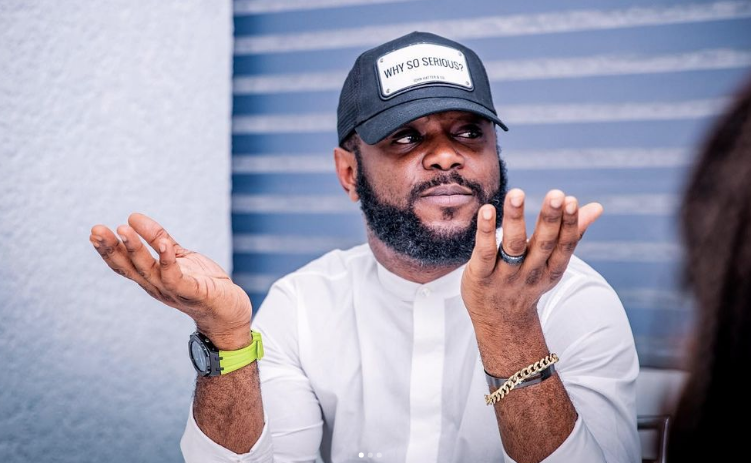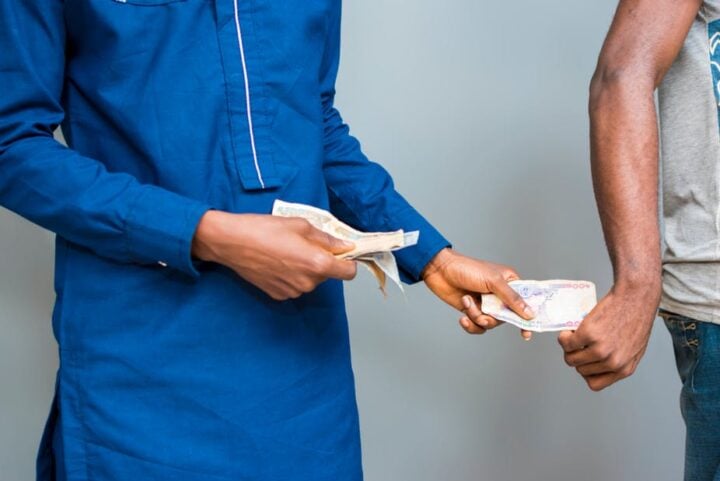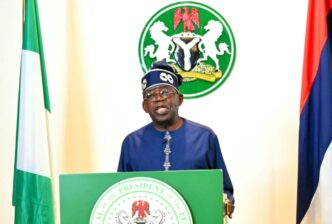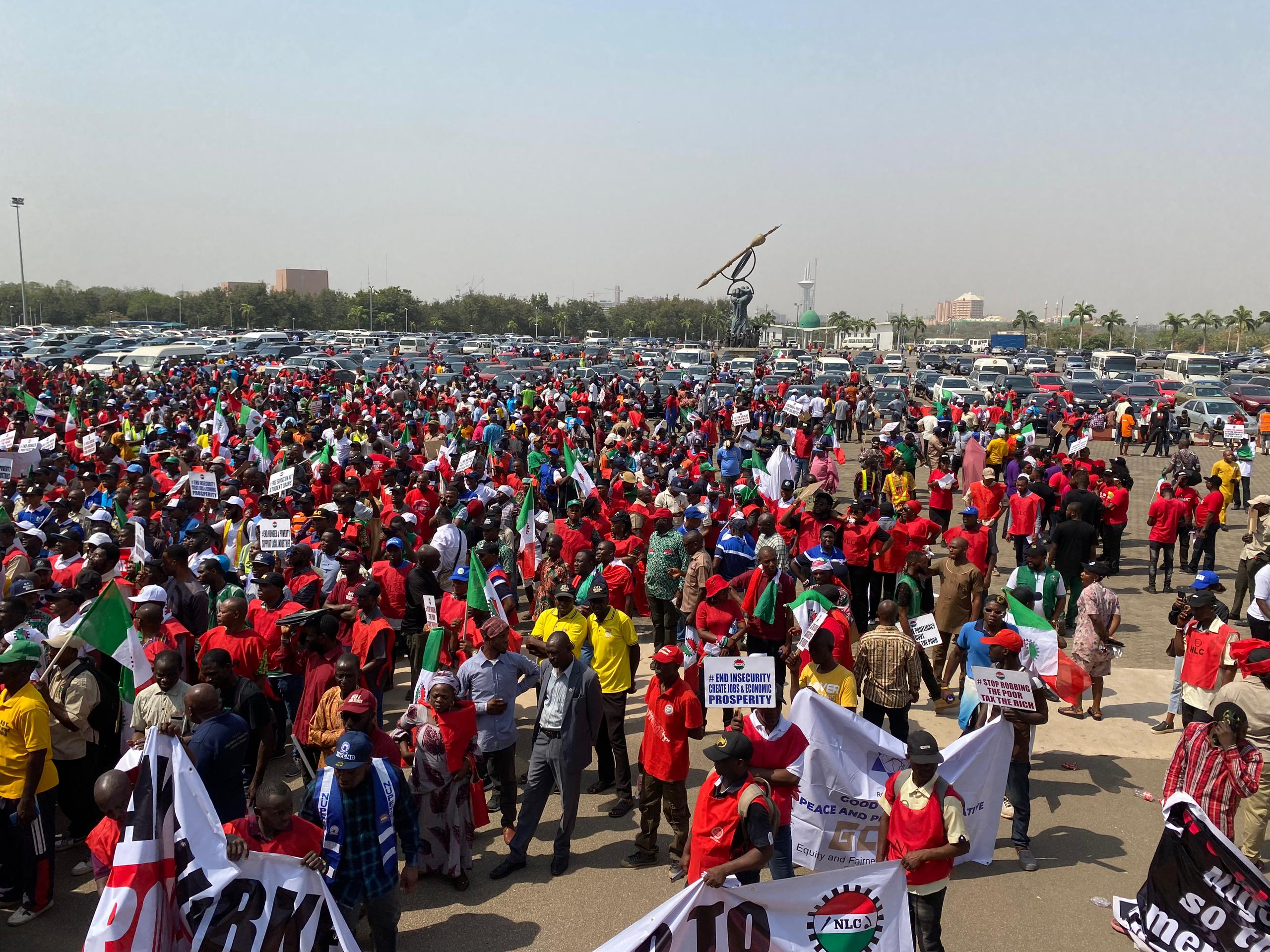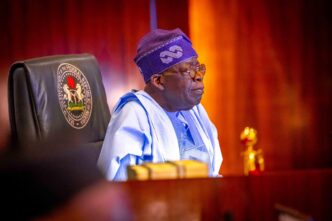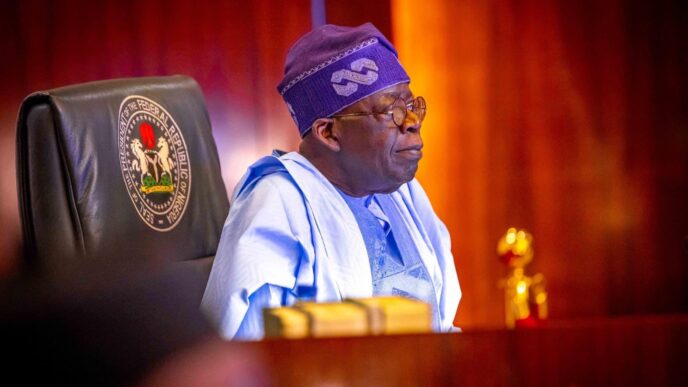Seyi Tinubu
BY ZUHAIRIYA MAHMUD PITIKO
In an age where proximity to power often breeds entitlement, Seyi Tinubu—son of Nigeria’s President Bola Ahmed Tinubu—has chosen a different route.
Rather than retreating into the cushioned opacity of privilege, he has projected himself into the public square, lending visibility and voice to causes often neglected by the political class. That he is being vilified for doing so speaks volumes—not of him, but of the political theatre that now governs public discourse in Nigeria.
Tinubu’s approach to influence is unorthodox. He does not wield his surname as a shield, nor does he treat public attention as a currency for self-enrichment. Instead, he has placed himself at the confluence of policy and public engagement, speaking out on health equity, education reform, and the broader aspirations of his father’s renewed hope agenda.
Advertisement
Whether advocating for indigent healthcare or pressing for greater access to education, Seyi Tinubu has chosen substance over spectacle—a rare disposition among political heirs.
This engagement is neither ceremonial nor opportunistic. Observers note that Tinubu has appeared at youth-focused forums, health outreach initiatives, and educational summits—often without the trappings of officialdom. He does not speak from gilded podiums but from street corners, classrooms, and community centres.
He engages, not dictates; listens, not lectures. This deliberate informality has earned him goodwill among young Nigerians disillusioned by the aloofness of traditional power structures.
Advertisement
Yet, his efforts have made him a magnet for conspiracy and slander. The latest attack came wrapped in the language of student politics, when Comrade Atiku Abubakar Isah, a self-styled leader of the National Association of Nigerian Students (NANS), accused him of storming an Abuja hotel with armed men to disrupt the association’s inauguration.
The claim is as implausible as it is sensational: Isah, it turns out, is reportedly a university lecturer—raising questions not just about the validity of his mandate, but about the theatre of deception in which the accusation was staged.
Tinubu has firmly denied the allegation, calling it defamatory. The speed with which the claim has unravelled—marked by inconsistencies, unverifiable timelines, and an apparent absence of corroborating evidence—suggests less a credible grievance and more a calculated smear. It is a tactic familiar in Nigerian politics: when legitimate criticism fails, opponents resort to the fantastical.
That he has become a target is perhaps unsurprising. In a deeply polarised polity, where every action is interpreted through a prism of partisanship, Tinubu’s high visibility and hands-on activism make him an easy scapegoat.
Advertisement
But the reaction to his work raises uncomfortable questions: is Nigeria prepared to welcome a generation of political scions who reject passivity and embrace civic engagement? Or will cynicism continue to trump merit?
The younger Tinubu’s activism does not absolve him of scrutiny, nor should it. Public figures must be held to account. But such scrutiny ought to be tethered to facts, not fiction.
The current campaign against him reeks more of political opportunism than genuine concern. Indeed, the proliferation of unfounded narratives targeting Mr Tinubu reflects a deeper malaise: a society increasingly prone to substituting virality for veracity.
The context is instructive. Nigeria is in the throes of political and economic recalibration. The old guard is being challenged, not by formal opposition parties alone, but by a young, digitally savvy population demanding better governance and more accountable leadership.
Advertisement
In such a landscape, the children of incumbents are under unusual pressure to prove their relevance or risk becoming emblems of entitlement. That Mr Tinubu has chosen the former path is notable.
He operates in a uniquely combustible environment. As the son of a sitting president, he is at once expected to remain apolitical and yet somehow justify his presence in public discourse. This double bind is not new, but in today’s Nigeria—where social media has flattened hierarchies and accelerated judgment—its effects are more acute. Seyi Tinubu is not just navigating politics; he is navigating perception.
Advertisement
Critics often ask: what qualifies him? The answer is both simple and inconvenient. He qualifies himself—through action, not inheritance. Leadership, after all, is not the preserve of titles but of temperament. In a system where indolence is more familiar than innovation, Mr Tinubu’s energy is disruptive.
His decision to focus on youth development, social advocacy, and infrastructural dialogue indicates a willingness to do the hard work, even if some refuse to see it.
Advertisement
His initiatives have not always made front-page news—perhaps because they do not fit the prevailing narrative of impunity. But for those paying attention, a pattern has emerged: a young man leveraging access not for accumulation but for amplification—of ideas, of needs, of underrepresented voices.
This is not to say he is above missteps; no public figure is. But it is to say that the bar by which he is being judged seems calibrated more by political resentment than objective assessment.
Advertisement
Nigeria’s democracy is young, noisy, and often unruly. But its health depends on a citizenry able to distinguish between dissent and defamation, between accountability and sabotage. The frenzied attempts to discredit Seyi Tinubu reveal more about the accusers than the accused.
That a student leader can make such an allegation without immediate, public scrutiny underscores a worrying erosion of discernment in the marketplace of ideas.
The broader lesson here is not just about Tinubu. It is about what kind of public culture Nigeria wishes to cultivate. One in which every effort at genuine engagement is met with suspicion? Or one where young leaders, regardless of pedigree, are judged on the basis of performance, not perception?
More broadly, the episode underscores a challenge for Nigeria’s fragile democracy. The country must learn to distinguish between constructive involvement and political overreach, between genuine service and the performance of politics. Tinubu may have his critics, but if Nigeria is to nurture a more engaged and responsible elite, his model may be a necessary, but uncomfortable precedent to the naysayers.
Zuhairiyat Mahmud Pitiko writes from Taraba
Views expressed by contributors are strictly personal and not of TheCable.
